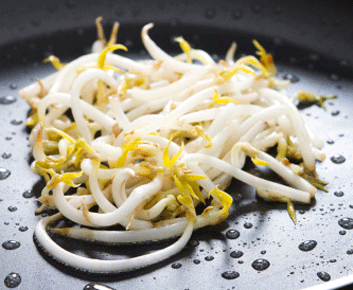Nutrition: How to avoid E. coli in sprouts
Personally, I’ve never been a big fan of sprouts’something about their texture. But with research showing that broccoli sprouts contain

Personally, I’ve never been a big fan of sprouts’something about their texture. But with research showing that broccoli sprouts contain 30 to 50 times the concentration of sulforaphane’a compound known for its cancer-fighting power’as mature broccoli does, and the assortment of tasty pea and radish sprouts now on the market, lately I’ve been piling sprouts on everything from salmon burgers to salads and pasta dishes.
So with the recent European outbreak of E. coli food poisoning linked back to spouts in Germany, it’s a good time to recall that sprouts have been linked to food poisoning in the past, and to take some basic steps to ensure the sprouts you are eating are handled properly to reduce the risk of contamination and illness.
First, a reminder that Health Canada advises that pregnant women, young children, the elderly and those with weakened immune systems should not eat uncooked or undercooked sprouts, because they are at greater risk of serious effects from food-borne illness. At restaurants, people at risk should should that raw sprouts not be added to their meals.
Here’s a summary of Health Canada’s pointers for purchasing and storing sprouts safely.
At the store or market:
‘ Ensure sprouts are kept refrigerated or surrounded by ice.
‘ Select crisp-looking sprouts and avoid ones that look dark or smell musty.
‘ If buying bulk, use tongs, gloves or a bag over your hand to place sprouts into a plastic bag.
At home:
‘ Refrigerate the sprouts immediately; separate from raw meat, poultry and seafood to avoid cross-contamination.
‘ Respect the best-before date on prepackaged sprouts; throw away any that are past that date.
‘ Consume sprouts that are not prepackaged within a few days.
‘ Rinse sprouts in cool, running water before cooking them.
‘ Cook sprouts thoroughly before consumption.




